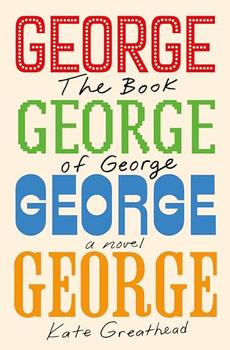Summary | Excerpt | Reading Guide | Reviews | Readalikes | Genres & Themes | Author Bio

Chapter One
Liaison. The Warmth of Family.
Stormy Weather.
The evening his master died he worked again well after he ended the day for the other adults, his own wife among them, and sent them back with hunger and tiredness to their cabins. The young ones, his son among them, had been sent out of the fields an hour or so before the adults, to prepare the late supper and, if there was time enough, to play in the few minutes of sun that were left. When he, Moses, finally freed himself of the ancient and brittle harness that connected him to the oldest mule his master owned, all that was left of the sun was a five-inch-long memory of red orange laid out in still waves across the horizon between two mountains on the left and one on the right. He had been in the fields for all of fourteen hours. He paused before leaving the fields as the evening quiet wrapped itself about him. The mule quivered, wanting home and rest. Moses closed his eyes and bent down and took a pinch of the soil and ate it with no more thought than if it were a spot of cornbread. He worked the dirt around in his mouth and swallowed, leaning his head back and opening his eyes in time to see the strip of sun fade to dark blue and then to nothing. He was the only man in the realm, slave or free, who ate dirt, but while the bondage women, particularly the pregnant ones, ate it for some incomprehensible need, for that something that ash cakes and apples and fatback did not give their bodies, he ate it not only to discover the strengths and weaknesses of the field, but because the eating of it tied him to the only thing in his small world that meant almost as much as his own life.
This was July, and July dirt tasted even more like sweetened metal than the dirt of June or May. Something in the growing crops unleashed a metallic life that only began to dissipate in mid-August, and by harvest time that life would be gone altogether, replaced by a sour moldiness he associated with the coming of fall and winter, the end of a relationship he had begun with the first taste of dirt back in March, before the first hard spring rain. Now, with the sun gone and no moon and the darkness having taken a nice hold of him, he walked to the end of the row, holding the mule by the tail. In the clearing he dropped the tail and moved around the mule toward the barn.
The mule followed him, and after he had prepared the animal for the night and came out, Moses smelled the coming of rain. He breathed deeply, feeling it surge through him. Believing he was alone, he smiled. He knelt down to be closer to the earth and breathed deeply some more. Finally, when the effect began to dwindle, he stood and turned away, for the third time that week, from the path that led to the narrow lane of the quarters with its people and his own cabin, his woman and his boy. His wife knew enough now not to wait for him to come and eat with them. On a night with the moon he could see some of the smoke rising from the world that was the lane -- home and food and rest and what passed in many cabins for the life of family. He turned his head slightly to the right and made out what he thought was the sound of playing children, but when he turned his head back, he could hear far more clearly the last bird of the day as it evening-chirped in the small forest far off to the left.
He went straight ahead, to the farthest edge of the cornfields to a patch of woods that had yielded nothing of value since the day his master bought it from a white man who had gone broke and returned to Ireland. "I did well over there," that man lied to his people back in Ireland, his dying wife standing hunched over beside him, "but I longed for all of you and for the wealth of my homeland." The patch of woods of no more than three acres did yield some soft, blue grass that no animal would touch and many trees that no one could identify. Just before Moses stepped into the woods, the rain began, and as he walked on the rain became heavier. Well into the forest the rain came in torrents through the trees and the mighty summer leaves and after a bit Moses stopped and held out his hands and collected water that he washed over his face. Then he undressed down to his nakedness and lay down. To keep the rain out of his nose, he rolled up his shirt and placed it under his head so that it tilted just enough for the rain to flow down about his face. When he was an old man and rheumatism chained up his body, he would look back and blame the chains on evenings such as these, and on nights when he lost himself completely and fell asleep and didn't come to until morning, covered with dew.
From The Known World by Edward P. Jones. HarperCollins Publishers. Used by permission.




The dirtiest book of all is the expurgated book
Click Here to find out who said this, as well as discovering other famous literary quotes!
Your guide toexceptional books
BookBrowse seeks out and recommends the best in contemporary fiction and nonfiction—books that not only engage and entertain but also deepen our understanding of ourselves and the world around us.